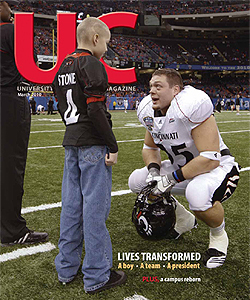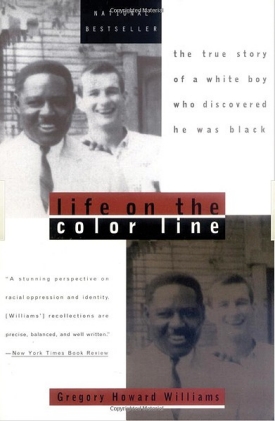When President Gregory Williams' book was published in 1995, the New York Times called it a "brave memoir." As its power hasn't dimmed, we asked three people on campus at the University of Cincinnati to describe their impressions, as well. Their reviews follow:
_______________________
Gregory Williams had no reason to believe that his father's alcohol-soaked words would prove prophetic, but believe he did: "One of these days, people won't believe you lived at 6011/2 Railroad Street and didn't have a pot to piss in," his father told him.
As I read Williams' memoir, I marveled at the true story's plot twists and turns and the nearly inconceivable challenges our new UC president faced establishing his identity amid racial ambiguity. As I absorbed the vivid details that brought the story to life, the writer and journalist in me took note: This man can write.
With thoughtful attention to scene, dialogue and plot development, Williams introduces us to the wide range of people who shaped his youth and young adulthood. He paints them neither as villains nor heroes, but as humans -- complex, creative, conflicted and sometimes even criminal.

 Issue Archive
Issue Archive